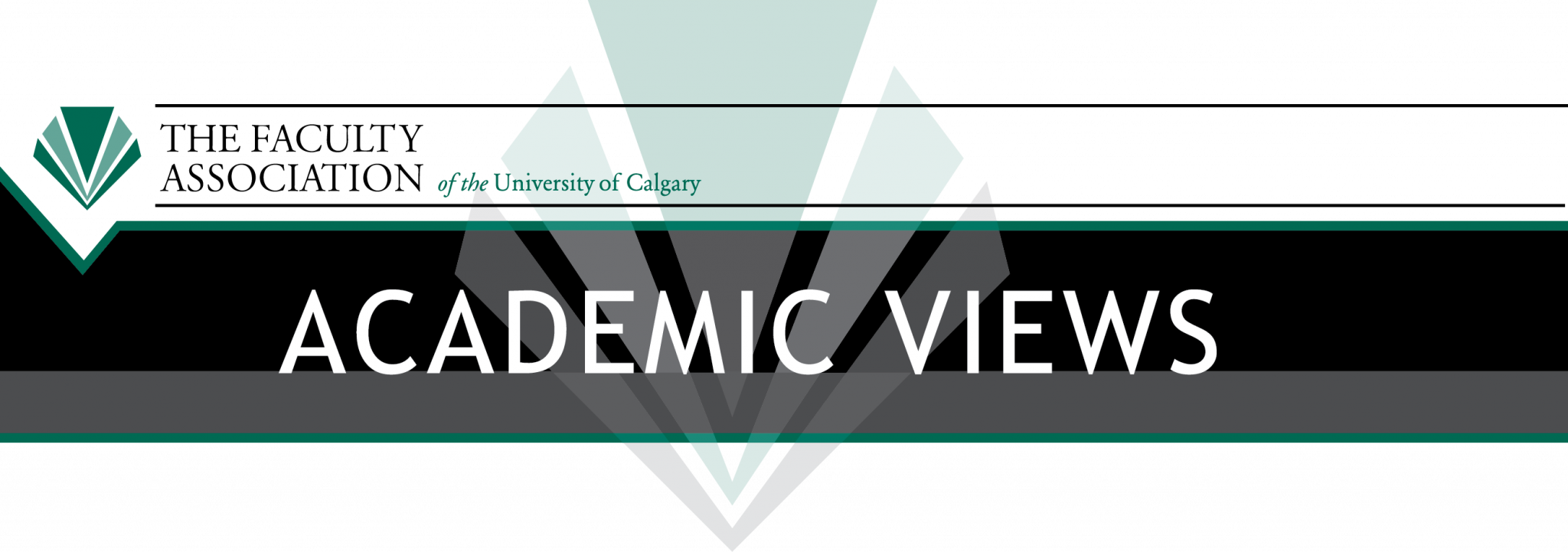
– By Sandra Hoenle, Faculty Association President –
Yesterday the Canadian Association of University Teachers (CAUT) released a report “Into the Enbridge Centre for Corporate Sustainability At the University of Calgary”. It is now available at https://www.caut.ca/sites/default/files/caut-ahic-report-calgary-enbridge-centre-for-corporate-sustainability_2017-10.pdf.
The Faculty Association welcomes the release of the report by the CAUT Ad Hoc Investigatory Committee at long last, as it confirms many of the concerns that we and others within the University of Calgary academic community have been raising regarding failures of governance, lack of transparency, the need for robust protection of academic freedom, and the perceptions of conflict of interest.
The Investigatory Committee consisted of Professors Alison Hearn of the University of Western Ontario and Gus Van Harten of Osgoode Hall Law School and their investigation was conducted under the CAUT Procedures in Academic Freedom Cases which are available at https://www.caut.ca/about-us/caut-policy/lists/administrative-procedures-and-guidelines/caut-procedures-in-academic-freedom-cases
The Report’s detailed and extensive findings (pp. 3-6) are of great concern to the Faculty Association.
One of the greatest concerns is the domination of the senior administration in the governance processes of the University. The failures of the checks and balances intended in effective collegial governance are significant.
One of the failures in governance has been the Board of Governors’ and the Senior Administration’s misapplication of for-profit corporate structures within a university collegial setting. Rather than being a place of transparency and open debate reflecting the University as a public institution accountable to the academic and broader communities, the Governors and Administration have used for-profit corporate structures to keep decision making behind closed doors and controlled by the privileged few. The result is the type of decision making reflected in the CAUT report.
While there are many bodies within the University who share in the responsibility for establishing the currently closed decision-making climate, the President had a unique responsibility not only for creating the structures, but also in failing to act in a manner consistent with her high office. We are concerned about the lack of sound judgment by the president, who as a former Dean and academic staff member, clearly knew the importance of respecting academic freedom and avoiding the appearance of conflicts of interest.
The Report contains very important recommendations about changes in the practices of the University of Calgary (pp. 36 – 37). To avoid such future incidents as reported by CAUT, the Faculty Association calls upon the provincial government to immediately review the governance structures and freedom of information legislation. The current provincial government’s governance review, which has been truncated in recent months, needs to be expanded to address all of the issues identified in this report.
While this issue is in the past, we now need to focus on the future and ensure changes are made to prevent further damage. Without significant structural and policy changes within the University and by the provincial government, I fear that even greater problems are inevitable.
Unfortunately, the Board of Governors continues to rely on the report prepared for them by former Justice Terrance F. McMahon and now “considers the Enbridge matter closed.” (https://ucalgary.ca/utoday/issue/2017-10-12/board-reaffirms-its-full-support-and-confidence-president-elizabeth-cannon) Appendix A of the CAUT Report provides a critical assessment of the McMahon Report.
I call on the academic community and the provincial government to review the report for important lessons for our future, and to take action. We need a thorough review of governance processes both within the University and by the provincial government.
